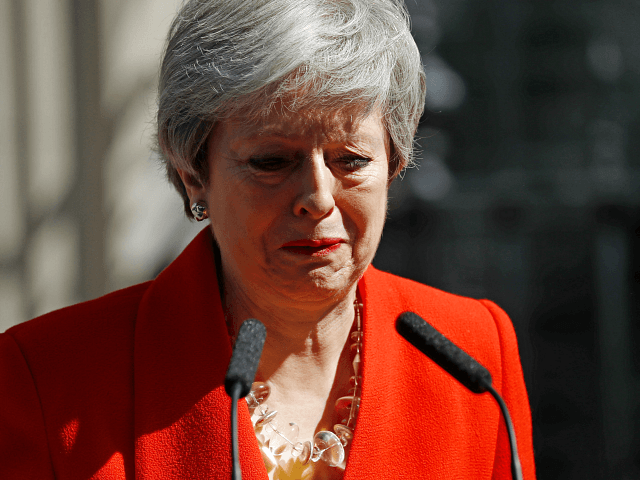Theresa May has finally conceded that she can no longer remain in Downing Street, announcing she will resign as prime minister on June 7th, and reactions are rolling in.
Theresa May had clung on after surviving the loss of her parliamentary majority in the 2017 snap election, three historic parliamentary defeats for her proposed withdrawal treaty with the EU, a no confidence vote in which over half of her backbenchers called on her to go, calls to step down by the leadership of the party’s grassroots activists, devastating losses in English local elections, and dire polling for the European Parliament elections.
But, with an attempt to put her withdrawal treaty to the House of Commons for a fourth time, sweetened with an offer to let MPs vote on holding a second referendum, holed below the waterline before it could even be table, she has at last accepted the inevitable in an emotional speech, highlighting such “achievements” as her race disparity audit and gender pay reporting.
Reactions are mixed, with right-leaning Sun newspaper offered a pitying yet damning verdict in its leader article on her premiership, with digital political editor Hugo Gye observing that “she suffered the worst election campaign and the worst Commons revolt in history… she’s likely to be remembered as possibly the worst Prime Minister in decades or even of all time.”
Gye’s colleague Tom Newton Dunn struck a similar tone, describing her speech as a “highly dignified defence of her record”, but also a “clear admission of serious failure.”
“But the emotional collapse at the end revealed she is also [a] shattered human being, broken by the Brexit wheel,” he added.
Leave.EU, the larger of the two major Brexit campaigns in 2016, did not sweeten the pill, greeting her departure with a blunt “Good riddance! It’s time for Britain to have a prime minister who believes in this country and wants to deliver Brexit!
Arron Banks, the group’s pull-no-punches founder, was equally scathing: “[S]he tackled the really big issues like diversity audits,” he remarked caustically. “She humiliated the UK and will go down as the [worst] PM ever.”
Her inner circle, such as her controversial chief of staff Gavin Barwell, those MPs who clung on in her Cabinet until the bitter end, and even a number of ex-ministers hoping to succeed her, have been more charitable — likely in order to discourage her small coterie from attempting to thwart their leadership ambitions — with “dignity”, “resilience”, “public service” being key watchwords.
“[Theresa May] has acted with dignity and honour in pursuit of what she believes to be in the national interest, the hallmark of her time in public life,” remarked the Brexit-supporting trade secretary Liam Fox, who stood by her even as her mounting concessions to the EU made it clear Brussels would remain in control of British trade policy and render his position essentially meaningless.
“A very dignified statement from [Theresa May],” added Boris Johnson, who did resign from the Cabinet over her Brexit strategy.
“Thank you for your stoical service to our country and the Conservative Party. It is now time to follow her urgings: to come together and deliver Brexit.”
Johnson is a clear favourite among ordinary party members to succeed Mrs May — but he is less popular among largely Remain-voting Tory MPs, who will decide which two leadership contenders the members will be allowed to vote for in a series of preliminary votes among themselves.
Nigel Farage cast doubt on Johnson’s Brexit credentials this week when he pointed out that despite saying May’s deal would turn the United Kingdom into a vassal state of the Europe Union, he still voted for it in Parliament.

COMMENTS
Please let us know if you're having issues with commenting.